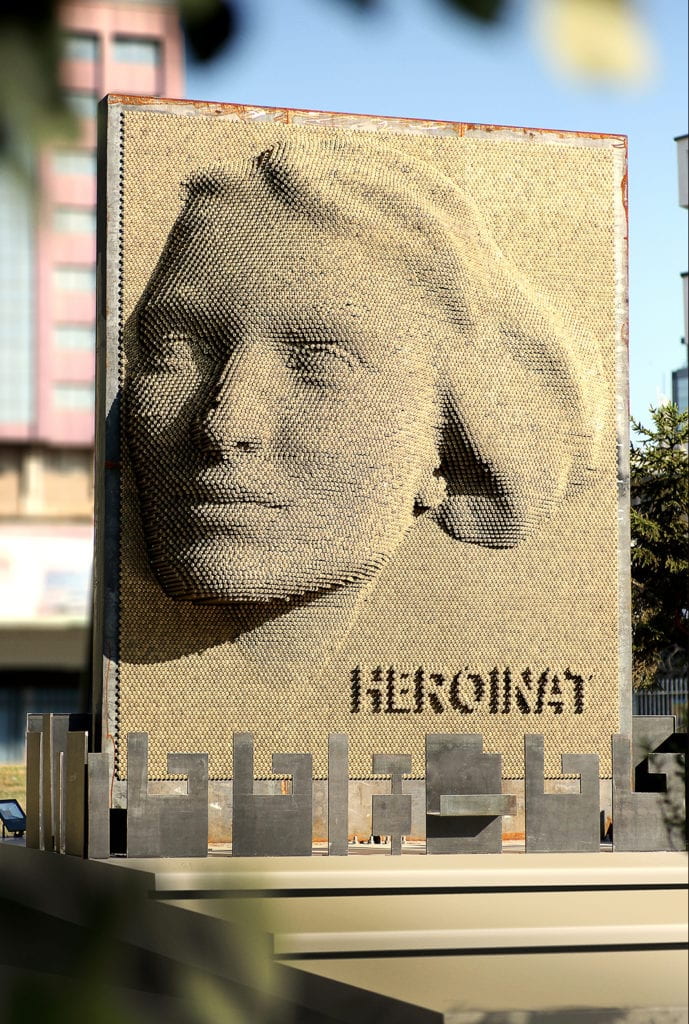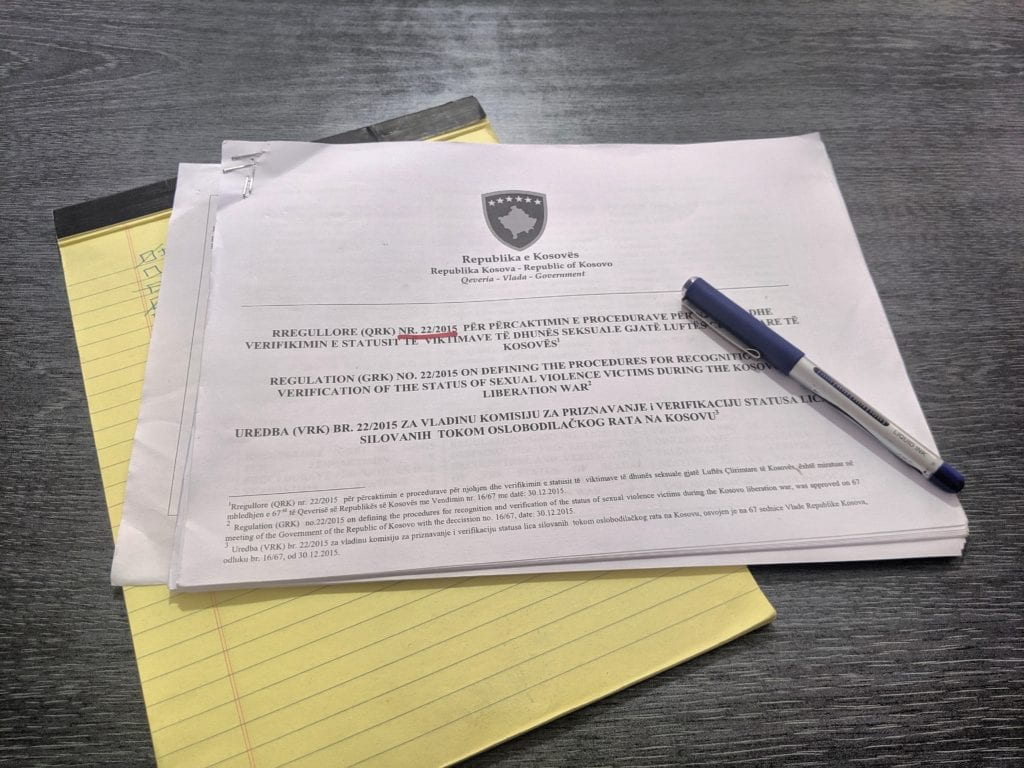Viktoria Pashtriku
Women’s Association Medica Gjakova
Gjakova, Kosovo
On December 30, 2015, the Republic of Kosovo passed “The Recognition and Verification of the Status of Sexual Violence Victim During the Kosovo Liberation War” (Regulation [GRK] No. 22/2015 – Decision No. 16/67). The initiative went into effect in January 2018. Unlike its kind anywhere in the world, this program is essential in recognizing the trauma of wartime sexual violence in a post-conflict society, fighting stigma of wartime sexual violence by legally legitimizing survivor’s experiences, and encouraging the public/survivors themselves to perceive survivors of wartime sexual violence with the same respect and dignity as war veterans.
This is particularly important, as survivors of wartime sexual violence were kept out of the law passed in 2011, “Status and the Rights of the Martyrs, Invalids, Veterans, Members of Kosova Liberation Army, Civilian Victims of War and Their Families” (Law No. 04/L-054), and the law passed in 2012, which recognizes the official status of “Kosovo Liberation Army War Veterans” (Law No. 04/L-261).


What is most important about this decision is that once an individual has been verified as a sexual violence victim, this individual will then receive a personal pension of 230 euros a month. This pension is vital in giving survivors the financial means to seek out medical and psychological assistance if needed, to take care of themselves and their families, to launch business initiatives, and much more.
I was able to provide administrative assistance for the application by reviewing it for errors and inconsistencies, making photocopies, and helping ensure that all parts of the application are gathered. The applications are evaluated according to the following criteria: (1) Medical Report, (2) Psycho-social Report, (3) Legal Report, (4) Witness Statement, and (5) Other. All parts are crucial in order to ensure a successful application.

My main interest when arriving to Kosovo was to better understand this recognition and the verification process. While observing the psycho-social staff at Medica Gjakova prepare and put together several of these applications (as well as asking a never-ending amount of questions), there were some issues I noticed and that were revealed to me about the application process:
- Although both men and women were raped during the Kosovo Liberation War, men experience more stigma about being a survivor of wartime sexual violence and are significantly less likely to apply.
- Women in villages are more likely to seek out services from Medica Gjakova and apply because they have a greater sense of privacy. Meanwhile, women from the cities are less likely to seek out services and apply because they are connected to a larger social circle and thus have more fear of getting “discovered” as survivors.
- The program was initially approved for five years with an end date of January 2023, after which individuals will no longer be able to apply. This is challenging, as many women wait until their husbands have passed away before seeking help, while others simply need more time to come forward with their experiences.
- There is anxiety in the public consciousness that women will lie about being survivors of wartime sexual violence in order to receive the pension, particularly in such a poor society. This mentality is only furthered by the public controversy caused when it was discovered that despite there only being up to 13,000 war veterans, a far larger number (53,000, as of 2016) have been registered and are receiving pensions.
- Despite the fact that survivors of trauma often struggle with remembering specific facts and details consistently (Herman 1992), any inconsistencies within the application and during the interview is perceived as grounds of lying and survivors are denied the status recognition.
Regardless of these issues, however, the initiative has indeed helped many survivors, and thousands of women have already been registered.
Works Cited
Herman, J. (2015). Trauma and Recovery: The Aftermath of Violence–From Domestic Abuse to Political Terror. New York, NY: Basic Books.
Human Rights Watch. (1998). Humanitarian Law Violations in Kosovo. New York, NY: Human Rights Watch.